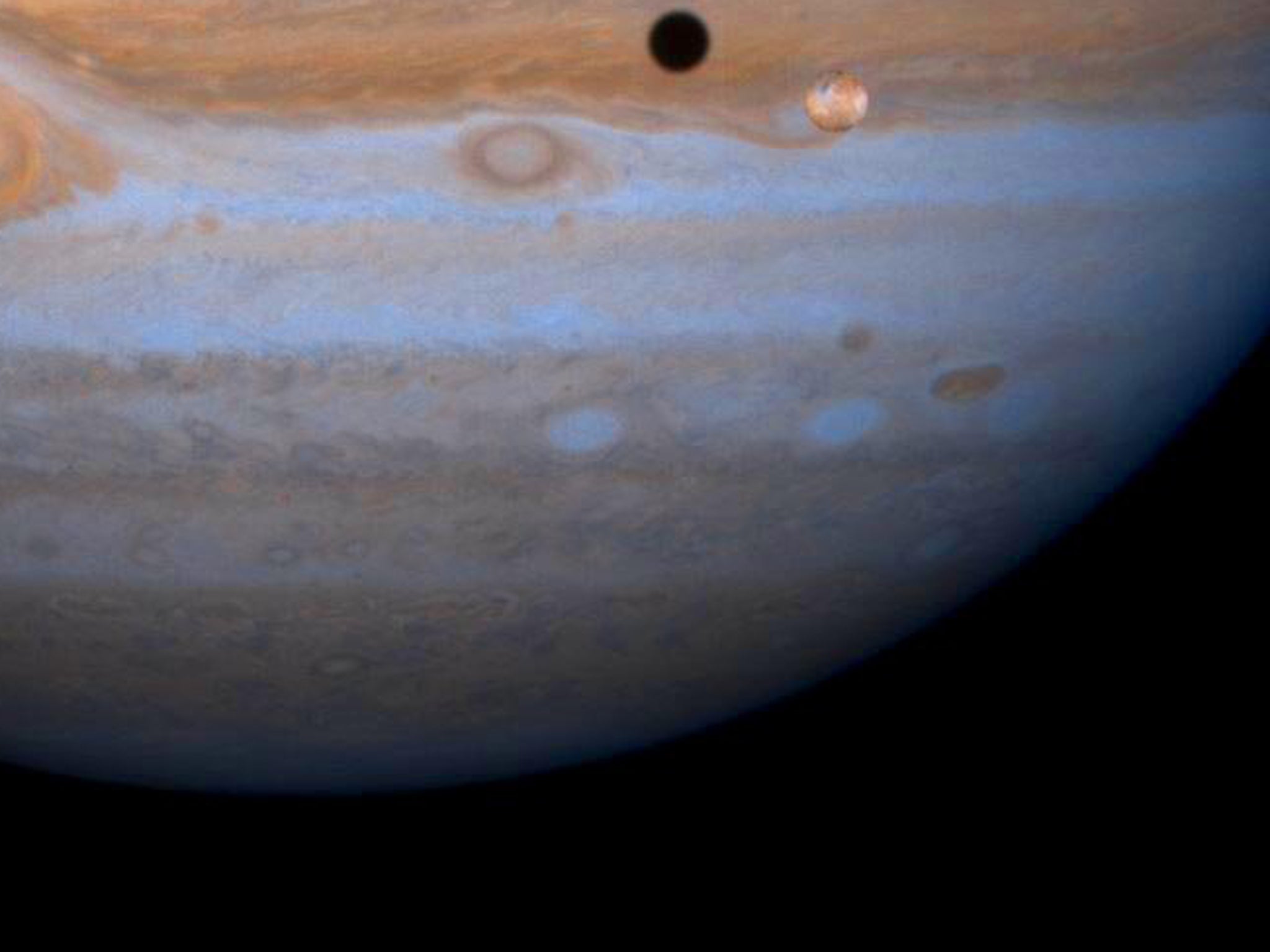Space probe could be sent to Jupiter's moon Europa as Nasa scientist says it is the most likely place to find life
Orbiting probe around Jupiter could be launched in 2021 or 2022 and could reach the giant planet within six years

Your support helps us to tell the story
From reproductive rights to climate change to Big Tech, The Independent is on the ground when the story is developing. Whether it's investigating the financials of Elon Musk's pro-Trump PAC or producing our latest documentary, 'The A Word', which shines a light on the American women fighting for reproductive rights, we know how important it is to parse out the facts from the messaging.
At such a critical moment in US history, we need reporters on the ground. Your donation allows us to keep sending journalists to speak to both sides of the story.
The Independent is trusted by Americans across the entire political spectrum. And unlike many other quality news outlets, we choose not to lock Americans out of our reporting and analysis with paywalls. We believe quality journalism should be available to everyone, paid for by those who can afford it.
Your support makes all the difference.A space probe could be sent to Europa, one of the moons of Jupiter and the most likely place in the Solar System for extraterrestrial life, within the next ten years, a Nasa scientist said today.
The US space agency has approved the “concept” of a probe that could orbit Jupiter and make a detailed survey of the icy surface of Europa which covers a liquid ocean where life may exist.
An orbiting probe around Jupiter could be launched in 2021 or 2022 and could reach the giant planet within six years, said Robert Pappalardo, a senior researcher at Nasa’s Jet Propulsion Laboratory in California.
The probe, called Clipper, will be designed to survey the surface of Europa using ice-penetrating radar and infrared sensors as it makes multiply flybys of the ice-capped “water world” from its orbit around Jupiter, Dr Pappalardo said.
Mapping data from the survey will be used to plan a future mission to make a soft landing on the moon in order to search for signs of life, Dr Pappalardo told the American Association for the Advancement of Science meeting in Boston.
“Europa is the most likely place to find life beyond Earth and there is high interest in the scientific community and the US Congress to see a Europa mission,” Dr Pappalardo said.
Nasa commissioned a report on a future Europa probe which concluded that the mission would cost $2bn, in addition to the cost of the launch vehicle and rockets. However, the mission has yet to be approved could still be rejected from future budgets, he said.
“Clipper will make multiple flybys of Europa and we are going to get some information about it but we are not going to be able to answer the big-picture questions, such as where is the liquid ocean and whether there is life there,” Dr Pappalardo said.
“We think Europa is the most likely place for being habitable because of its relatively thin ice shell, its liquid ocean and that fact that it is in contact with the rock below which is geologically active,” he said.
“We think that Europa has the right ingredients for life: it has water and the right chemical elements, as well as an environment that is probably stable over time. So the question is; how do we best explore Europa?” he told the meeting.
“It is the most likely place for life, we should be exploring it and we think we have the right concept to get there,” he added.
Join our commenting forum
Join thought-provoking conversations, follow other Independent readers and see their replies
Comments